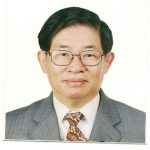No-first-use isn’t broken, so don’t fix it
By Parris H. Chang, November 10, 2016
As time ticks away on President Barack Obama's final term—and as Donald Trump prepares to assume the presidency—can Obama be said to have made adequate progress on his commitment, delivered in Prague in 2009, "to seek the peace and security of a world without nuclear weapons?" To be sure, his efforts toward disarmament have been considerable. In 2010, the Defense Department's Nuclear Posture Review reduced the role of nuclear weapons in US national security strategy; ruled out the development of new nuclear warheads; and narrowed the contingencies under which Washington would ever use or threaten to use nuclear weapons. For a while there was talk that Obama would push further, in particular by declaring a no-first-use policy for nuclear weapons. That now seems unlikely. But if he had taken that step—or if any president in the reasonably near future takes that step—would such a policy "qualify as a serious confidence-building measure and a step toward a more peaceful world," as my roundtable partner Ta Minh Tuan believes?
Not according to US allies such as Japan, South Korea, the United Kingdom, and France, all of which have informed the Obama Administration that they would consider a no-first-use policy detrimental to their security. Leading politicians in Seoul are alarmed by no-first-use, and some have broached the idea that South Korea should develop its own nuclear deterrent. Meanwhile, during a US National Security Council meeting in July, Secretary of Defense Ashton Carter and Secretary of State John Kerry reportedly warned that a no-first-use declaration would alarm US allies, undercut Washington's credibility, and send a message of weakness abroad.
I wrote in Round One that President Dwight Eisenhower relied on the threat of nuclear weapons to forestall an invasion of Taiwan by Communist China. This threat helped bring about a cease-fire in the Taiwan Strait that has held since the 1950s. But Beijing's goal of dominating and eventually annexing Taiwan remains unchanged. In the past few decades, China has substantially modernized and expanded its conventional and nuclear military forces. In recent years it has greatly boosted its military capabilities in the South China Sea in order to challenge US supremacy in the Asia-Pacific. Moreover, China has developed advanced anti-access/area-denial capabilities that could inflict severe damage on US forces. These capabilities are intended in part to deter US intervention in a Chinese attack on Taiwan.
In Washington, some experts have called for a policy of accommodation with China—"meeting China halfway," or even abandoning Taiwan. These experts' rationale is that, due to China's immense growth in economic and military power, the price of defending Taiwan would be too high for the United States to pay. Against this backdrop, US adoption of a no-first-use policy would likely undermine confidence in Taipei that Washington would come to its aid in time of need. No-first-use would send a misleading signal that the United States no longer had the will to stand up to China. The hawkish Chinese leadership could be emboldened by perceived US weakness to engage in military adventures in Taiwan. The following infamous piece of history is relevant and instructive: When North Korean forces invaded the South in June 1950, neither Joseph Stalin nor Kim Il-sung expected US intervention—because less than six months before, US Secretary of State Dean Acheson had described a US defensive perimeter in the Western Pacific that conspicuously excluded Korea.
In March of this year, Obama repeated his Prague observation that "achieving the security and peace of a world without nuclear weapons will not happen quickly, perhaps not in my lifetime." He went on to say that "no one nation can realize [the] vision [of disarmament] alone. It must be the work of the world." Obama is fully aware that a policy as important and far-reaching as nuclear no-first-use requires broad bipartisan support at home. But Obama was unable to forge consensus on no-first-use even within his own party or administration.
As the American saying goes, "If it ain't broke, don't fix it." For now, US nuclear ambiguity is a sound policy that doesn't need any fixing.
Topics: Nuclear Weapons
Share: [addthis tool="addthis_inline_share_toolbox"]














